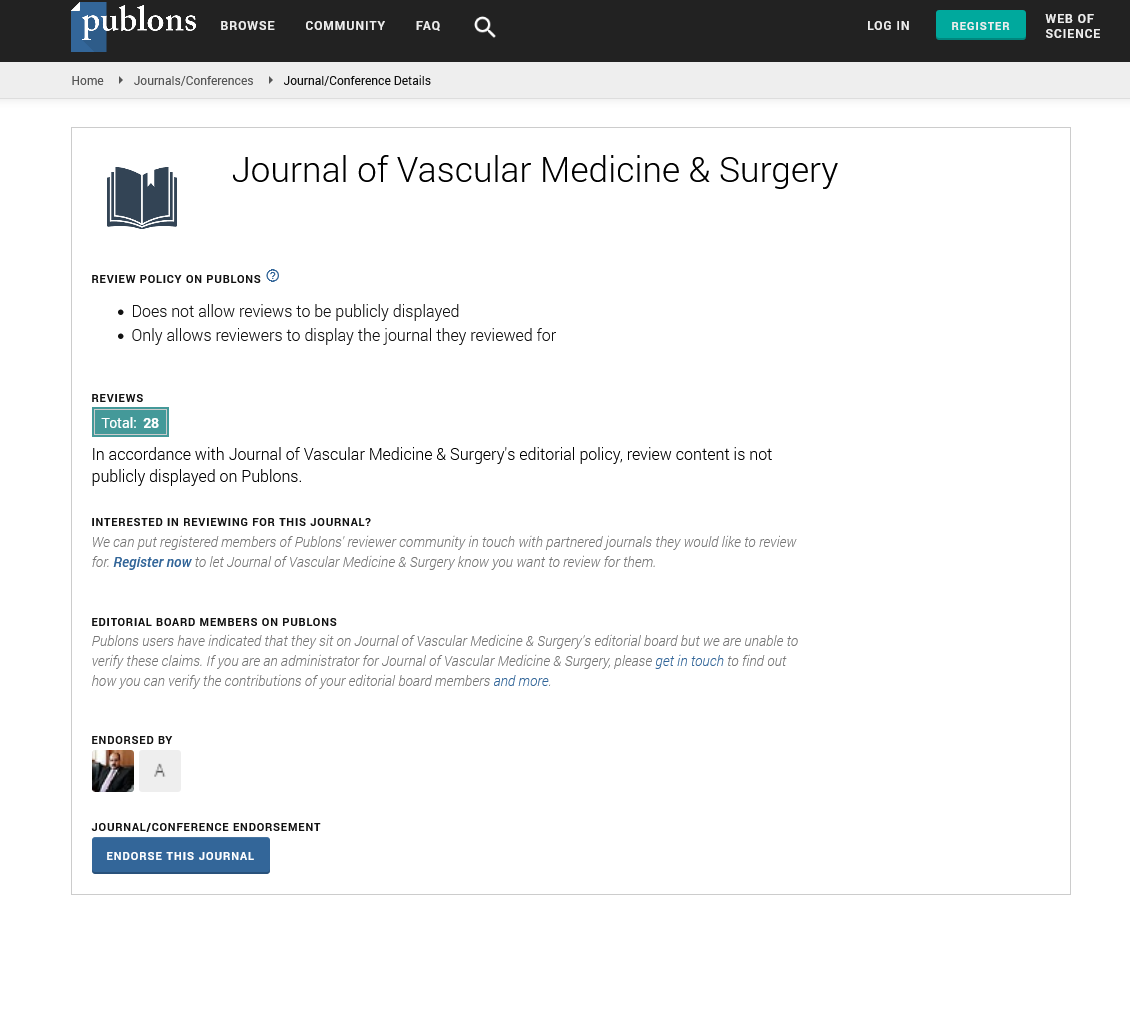Indexed In
- Open J Gate
- Academic Keys
- RefSeek
- Hamdard University
- EBSCO A-Z
- OCLC- WorldCat
- Publons
- Euro Pub
- Google Scholar
- SHERPA ROMEO
Useful Links
Share This Page
Journal Flyer

Open Access Journals
- Agri and Aquaculture
- Biochemistry
- Bioinformatics & Systems Biology
- Business & Management
- Chemistry
- Clinical Sciences
- Engineering
- Food & Nutrition
- General Science
- Genetics & Molecular Biology
- Immunology & Microbiology
- Medical Sciences
- Neuroscience & Psychology
- Nursing & Health Care
- Pharmaceutical Sciences
Abstract
A Review of Superficial Femoral Artery Angioplasty and Stenting
Rami O Tadros, Ageliki G Vouyouka, Windsor Ting, Victoria Teodorescu, Sung Yup Kim, Michael L Marin and Peter L Faries
Introduction: Peripheral arterial disease (PAD) of the superficial femoral artery (SFA) is the most common cause of intermittent claudication. Several endovascular treatment options exist; the most frequent are angioplasty or angioplasty with stent placement. The aim of this review is to clarify the role of angioplasty alone vs. angioplasty with stent placement.
Methods: A literature review was conducted reviewing the topic of SFA angioplasty and SFA angioplasty with stenting. Three notable randomized trials were included in addition to other available studies on the topic.
Results: When a residual stenosis or flow limiting dissection is visualized, stenting is clearly necessary. Current literature favors the use angioplasty for short (~4 cm) SFA stenoses or occlusions due to comparable patency and results. Primary stenting using Nitinol stents may be a superior initial treatment for intermediate (6-8 cm) and long (>10 cm) length lesions. In these intermediate and long length lesions, the use of stents appears to reduce the restenosis rates and improves patency.
Conclusion: Angioplasty works best for short SFA stenoses or occlusions. However, angioplasty with stenting using is likely superior initial treatment for intermediate and long length lesions.

